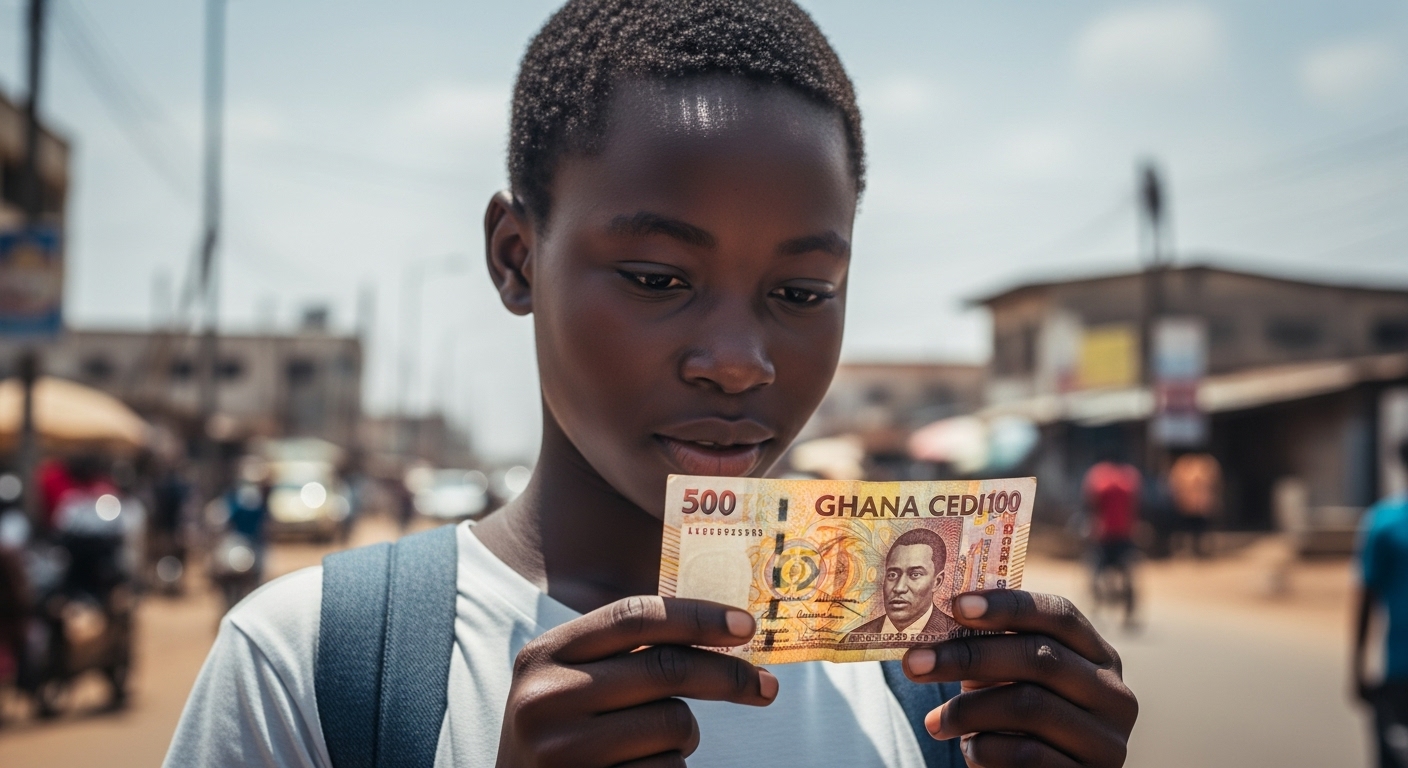Cedi Power Play: How Exchange Rates Can Make or Break Your Ghanaian Property Dream
For many astute investors, particularly those in the Ghanaian diaspora, the lure of real estate in Ghana is undeniable. It’s not just about building a legacy or securing a comfortable return; it’s about connecting with a vibrant, growing nation. But let’s be real – the world of currency exchange can feel like a rollercoaster. So, how do those fluctuating cedi rates truly impact your property investment in the land of gold? At DPN Global, we believe in empowering you with the knowledge to navigate this dynamic landscape and make informed decisions.
The Cedi’s Dance: A Brief Look at Ghana’s Currency Journey
Ghana’s economic narrative has seen its share of twists and turns, and the cedi (GHS) has certainly been at the heart of it. While the cedi has experienced periods of depreciation against major international currencies like the US Dollar (USD), there have also been strategic efforts by the Bank of Ghana to stabilize it. For instance, while the USD to GHS exchange rate has hovered around 10-15 GHS per USD in recent months, with peaks and troughs, the trajectory is dynamic. https://www.bog.gov.gh/treasury-and-the-markets/historical-interbank-fx-rates/
Why does this matter for real estate? Simply put, if you’re investing from abroad, your foreign currency buys you more cedi when the cedi is weaker, potentially allowing you to acquire more property for your buck. Conversely, a stronger cedi means your foreign currency has less purchasing power.
The Double-Edged Sword: Opportunities and Risks
Understanding the interplay between exchange rates and property investment in Ghana is crucial. It presents both exciting opportunities and potential challenges:
Opportunities:
- Enhanced Purchasing Power (When the Cedi is Weaker): For diaspora investors holding stronger currencies like USD, GBP, or EUR, a depreciating cedi can translate into a significant advantage. Your dollars stretch further, potentially allowing you to acquire larger plots of land, more luxurious homes, or a greater number of properties than you would have otherwise. Think of it as a “sale” on Ghanaian real estate!
- Attractive Entry Points: Periods of cedi depreciation can create opportune moments for foreign investors to enter the market at a lower effective cost. This can lead to greater potential for capital appreciation when the cedi eventually strengthens or property values rise.
- Diversification and Portfolio Strength: Investing in a different currency zone like Ghana provides a natural hedge against economic fluctuations in your home country. It diversifies your portfolio, reducing overall risk and potentially enhancing long-term returns.
Risks (and how to mitigate them):
- Value Erosion: If the cedi depreciates significantly after your investment, the repatriated value of your property (when converted back to your foreign currency) could be less than your initial investment, even if the property’s value in cedi terms has increased. For example, a 2-bedroom property in Cantonments saw a 35.65% annual increase in GHS sales price between 2022 and 2023, but when converted to USD, it showed a -14.65% decrease due to currency devaluation. [Link to a specific article on this Cantonments example if available or a general article on currency erosion impact]
- Increased Costs: For those building or renovating, a weakening cedi can inflate the cost of imported building materials, which are often priced in foreign currencies. This can impact your overall project budget.
- Rental Income Fluctuations: If you’re relying on rental income in cedi, its conversion back to your home currency could be affected by exchange rate volatility.
Smart Strategies for the Savvy Investor
So, how can you navigate these currency currents and make your Ghanaian property investment a success?
- Long-Term Vision is Key: Real estate is inherently a long-term investment. While short-term currency fluctuations can be unsettling, focusing on the long-term appreciation of your property’s value in Ghana is paramount. Over time, property values in desirable locations tend to appreciate, often outpacing short-term currency dips.
- Hedge Your Bets (and your currency!): Consider exploring currency hedging strategies with a financial professional. This could involve using financial instruments like forward contracts to lock in an exchange rate for a future transaction, thereby mitigating the risk of adverse currency movements. [Link to an article on currency hedging strategies]
- Invest in High-Demand, Stable Locations: Properties in prime areas of Accra (East Legon, Cantonments, Airport Hills), Tema, and other rapidly developing cities tend to hold their value better and offer stronger rental yields, providing a buffer against currency volatility. The demand in these areas remains consistently high, driven by urbanization and diaspora interest. [Link to an article about prime real estate locations in Ghana and their market trends]
- Seek Rental Income in Foreign Currency (Where Possible): For some high-end properties, especially those catering to expatriates, it might be possible to structure rental agreements in USD or other stable foreign currencies. This directly mitigates exchange rate risk on your rental income.
- Work with Trusted Local Partners: This cannot be stressed enough! A reputable real estate firm like DPN Global not only helps you find the right property but also provides invaluable insights into market dynamics, legal due diligence, and strategies to navigate currency impacts. We understand the local landscape and can connect you with financial advisors who specialize in international investments. [Link to DPN Global’s “About Us” or “Why Choose Us” page]
- Stay Informed: Keep an eye on economic news from Ghana and global financial markets. Understanding the factors influencing the cedi’s performance (e.g., interest rates, inflation, foreign direct investment) will empower you to make more informed decisions.
DPN Global: Your Anchor in Ghana’s Property Market
At DPN Global, we believe in transparency and empowering our clients. We recognize that currency exchange rates are a significant consideration for our diaspora clients. That’s why we don’t just sell property; we offer a holistic approach that includes:
- Expert Market Analysis: We provide up-to-date insights into property values, market trends, and how economic factors, including exchange rates, might influence your investment.
- Due Diligence and Legal Support: Our team ensures your investment is secure, with thorough land title verification and clear legal guidance, safeguarding you from potential pitfalls.
- Tailored Investment Strategies: We work with you to understand your financial goals and risk tolerance, helping you craft a strategy that considers currency dynamics and maximizes your potential returns.
- Access to Verified Opportunities: We connect you with vetted developers and prime locations, minimizing risk and maximizing the potential for appreciation.
The journey to owning property in Ghana is an exciting one, and with the right knowledge and partnership, you can turn currency fluctuations into an advantage. Don’t let the headlines deter you; instead, let them empower you to make smarter, more strategic investments.
Ready to explore how your foreign currency can unlock your dream property in Ghana? Contact DPN Global today for a personalized consultation!







